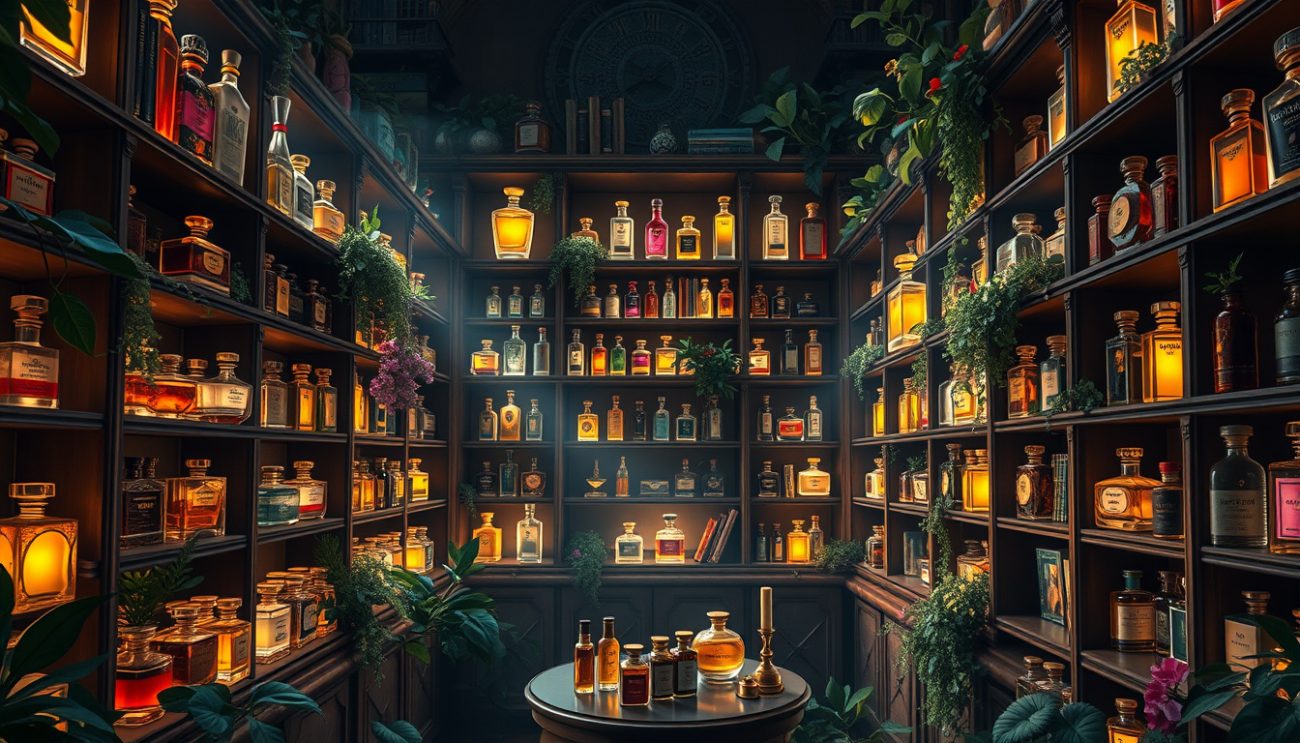In a world where the sense of smell often takes a backseat to sight and sound, the importance of scent in human history can hardly be overstated. From ancient civilizations using aromatic oils in religious ceremonies to the luxurious perfumes that adorned the elite of the Renaissance, the narrative of fragrance is woven deeply into our cultural fabric. In recent years, a fascinating trend has emerged: The Library of Smells: Reviving Extinct Perfumes. This movement is not just about nostalgia but a celebration of artistry and cultural heritage. As we embark on this aromatic journey, we will explore the significance of scent throughout history, delve into the revival of lost fragrances, discuss the innovative technologies breathing life back into these perfumes, and reflect on the ethical and sustainable practices shaping the future of the fragrance industry. Join us as we explore this captivating intersection of science, history, and artistry that will leave your senses tingling.

Key Takeaways
- Scent has played a crucial role in human history, influencing culture and emotions.
- Exploring extinct perfumes offers a unique glimpse into the past and its olfactory heritage.
- Modern technology facilitates the revival of vintage fragrances, merging old-world charm with contemporary techniques.
- Reviving extinct scents holds cultural significance, preserving history and reconnecting people with lost traditions.
- The future of perfume emphasizes sustainability and ethical considerations, ensuring environmentally friendly practices in fragrance creation.
The Importance of Scent in Human History
Throughout history, scent has played a pivotal role in human experience, influencing cultures, rituals, and even commerce. The Library of Smells: Reviving Extinct Perfumes highlights the importance of olfactory experiences, reminding us that our connection to scents goes far beyond mere fragrance. Ancient civilizations utilized perfumes not only for personal adornment but also in spiritual rites and as offerings to deities, showcasing how deeply intertwined scent was with societal values and beliefs. By exploring the Library of Smells initiative, we can uncover the lost aromas of the past, offering a sensory journey that enriches our understanding of history and the human experience. These revived perfumes not only celebrate our heritage but also foster a deeper appreciation for the complexities of scent in shaping human emotions and memories.
Exploring Extinct Perfumes: A Journey Through Time
The concept of The Library of Smells: Reviving Extinct Perfumes offers a fascinating exploration into the world of fragrance history. Perfumes have been an integral part of human culture for thousands of years, with countless scents emerging and fading from popularity. This journey through time not only highlights the artistry behind these fragrances but also the stories they tell about the societies that once cherished them. By delving into how ancient civilizations crafted their distinctive scents, we reintroduce lost aromas, allowing enthusiasts to experience the allure of perfumes that once graced the skin of royals, artists, and everyday people. Through careful research and innovative recreations, The Library of Smells bridges the gap between the past and present, inviting perfume lovers to rediscover the essence of history encoded in every bottle.
‘Perfume is the most intense form of remembrance.’ – Jean-Paul Guerlain

Future of Perfume: Sustainability and Ethical Considerations
As the perfume industry increasingly embraces sustainability and ethical considerations, innovative projects like ‘The Library of Smells: Reviving Extinct Perfumes’ are taking center stage. This initiative aims not only to bring back fragrances that have disappeared from the market but also to do so in a way that respects both the environment and the communities involved in their creation. With the growing demand for eco-friendly products, perfumers are now focused on sourcing sustainable ingredients and employing eco-conscious practices to minimize their carbon footprint. By reviving extinct perfumes, The Library of Smells not only preserves the artistry of traditional fragrance-making but also raises awareness about the importance of protecting biodiversity. As consumers become more educated about the impacts of their purchasing decisions, projects like this are paving the way toward a future where luxury and sustainability coexist, encouraging fragrance lovers to cherish not only the scents they wear but also the stories and ecosystems behind them.
Frequently Asked Questions
What is ‘The Library of Smells: Reviving Extinct Perfumes’?
‘The Library of Smells: Reviving Extinct Perfumes’ is an initiative focused on recreating and rediscovering fragrances that have disappeared from the market, using modern technology and historical research.
Why are scents important in human history?
Scents have played a crucial role in human history for various reasons, including their use in rituals, as symbols of status, and for their psychological effects on emotions and memories.
How does modern technology aid in the revival of extinct perfumes?
Modern technology, such as gas chromatography and mass spectrometry, allows researchers to analyze old fragrance formulas and molecular structures, enabling the accurate recreation of scents that were once lost.
What cultural significance do extinct perfumes hold?
Extinct perfumes often reflect the social, cultural, and historical contexts of their time, and reviving them can help preserve artifacts of cultural identity and heritage.
What are the ethical considerations in reviving perfumes?
Ethical considerations include ensuring sustainable sourcing of materials, respecting the cultural origins of the fragrances, and promoting responsible practices to avoid exploitation of resources and communities.
